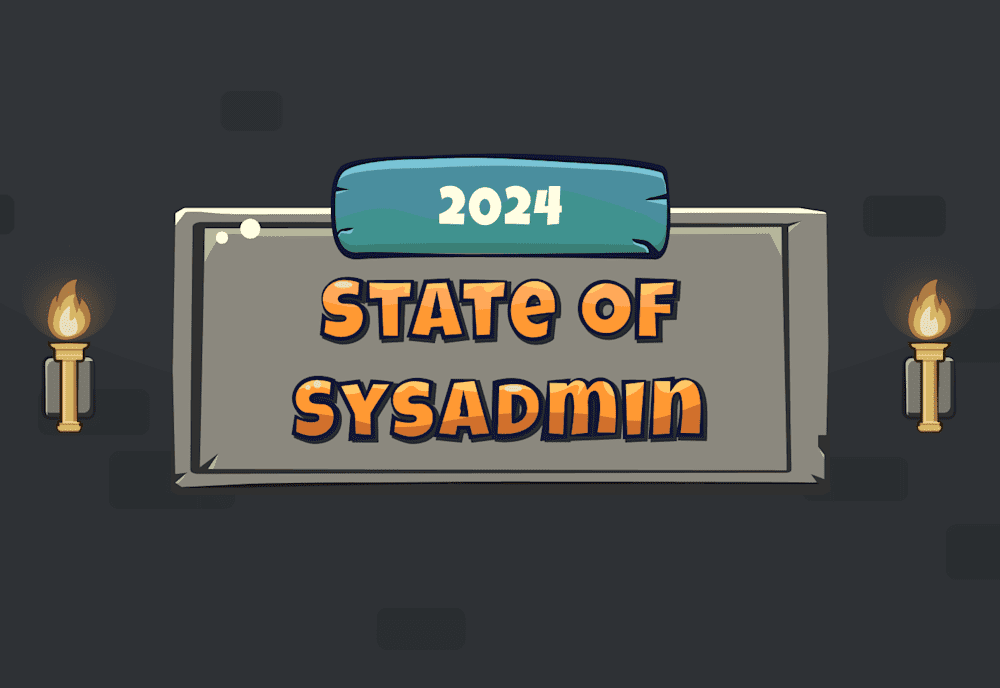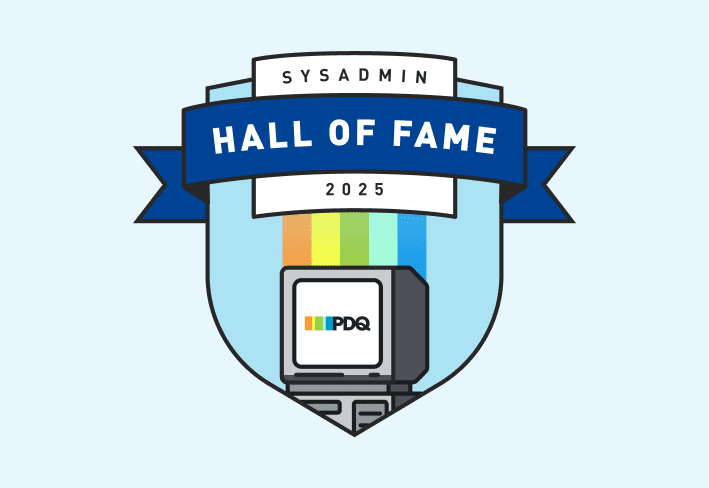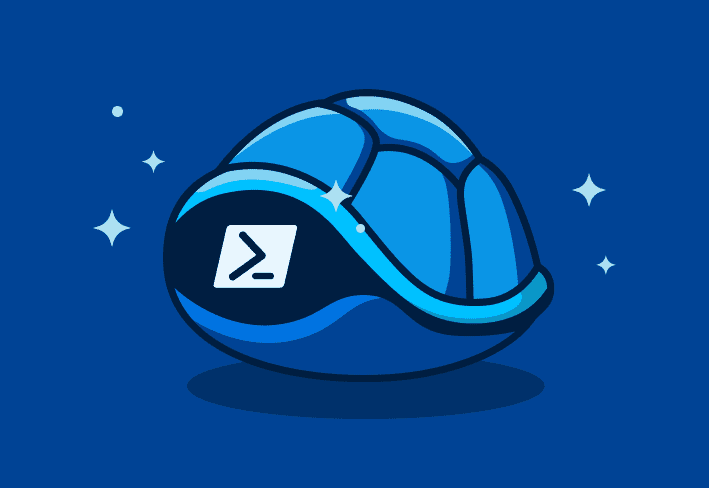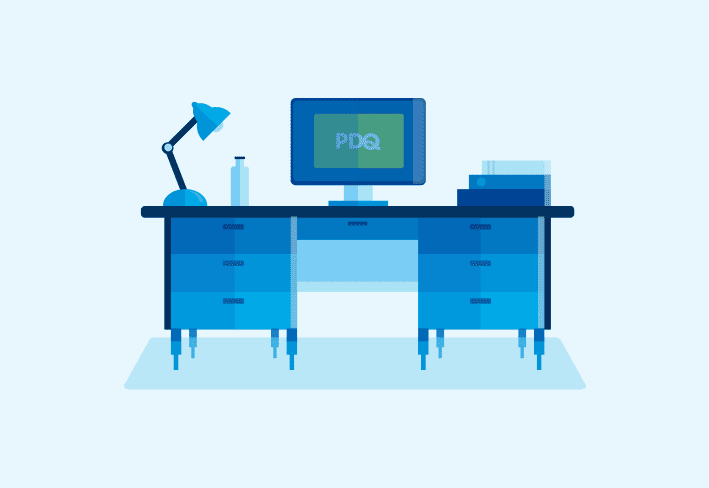2024: Another year older, another year wiser (or so we’d like to believe). Illusions of wisdom aside, sysadmins deserve to celebrate surviving another year of workplace trials and tribulations.
PDQ’s annual State of Sysadmin (SoSA) survey is our way of paying homage to this noble profession in honor of sysadmins past and present. This year, we asked folks about core topics including salary, cybersecurity, and their chosen tools of the trade, to name a few.
Who we surveyed:
1,600 IT professionals.
Individual contributors (47%), managers (38%), and freelancers or contractors (6%).
Sysadmins across industries such as education, industrials (manufacturing, construction), government, technology, healthcare, financial services, and professional services (law, consulting, etc).
Sysadmins working in companies of different sizes, ranging from small (1–10 employees), medium (101–500), to large (1,000+ employees).
We recommend taking a moment to savor the full report (it's a truly delightful read), but here’s a snapshot of key highlights in the meantime.
1. Sysadmin salaries are higher than average
Our latest survey results show that most sysadmins (60%) earn between $75,000 and $99,999 a year — above the U.S. nationwide average of $58,000.
Experience and seniority matter, which isn’t surprising. The more years you have under your keyboard or the higher your position, the more you’re likely to earn. Among IT professionals with 10+ years of experience, a majority earn $75,000 or more. And executives (think CTOs) have the highest percentage of top earners. (Let 2024 be the year we aim for the stars, friends.)
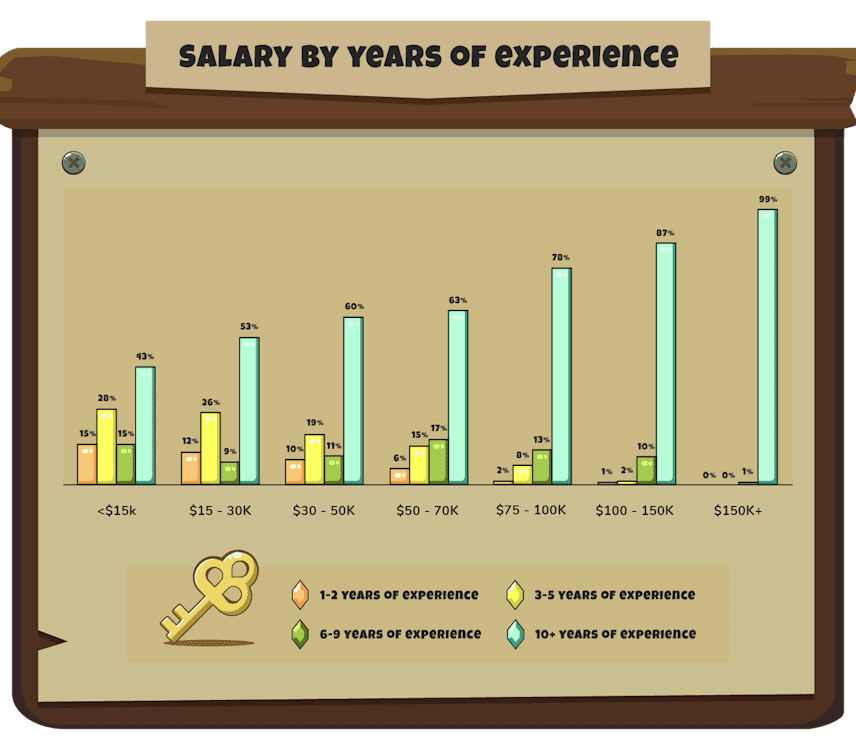
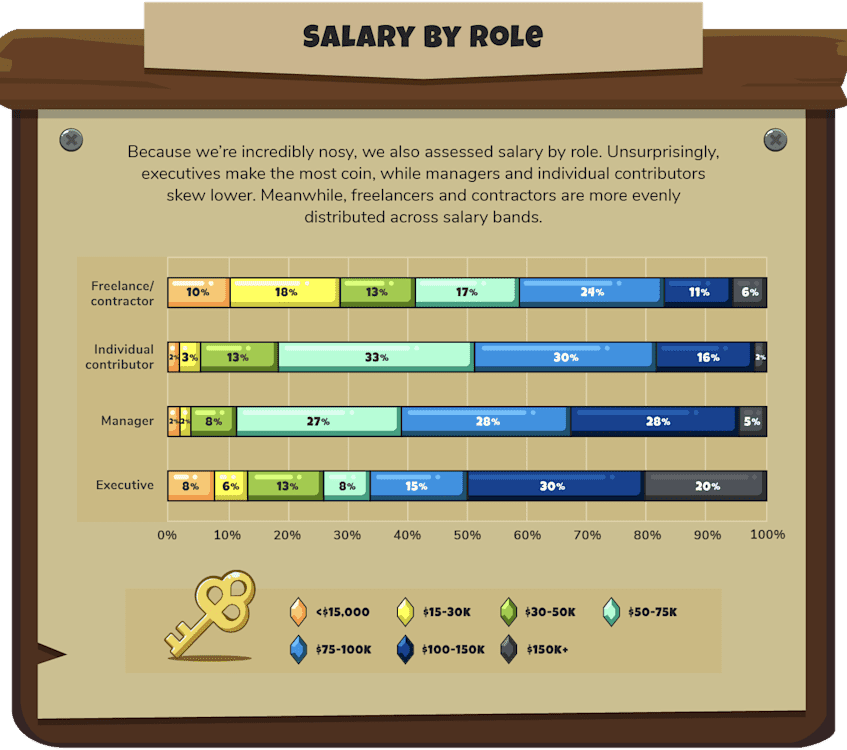
Sadly, more sysadmins in education are paid below-average wages compared to those in other industries, like technology and even healthcare. 😢 (If you know any, show them some love and buy them a coffee or three.)
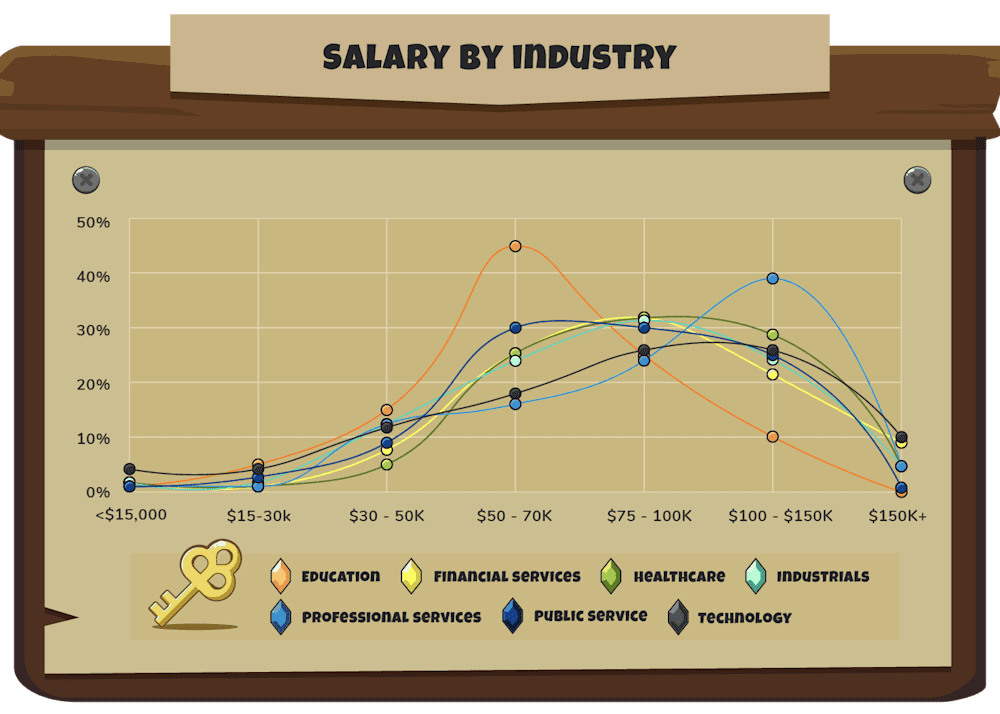
2. Sysadmins in finance had a rougher year than most
Almost half of those in finance (42%) report feeling more stressed at work than they were a year ago. 😓 We’re not sure if this is due to major events like U.S. bank failures, inflation rates, or the discontinuation of Maple Cheerios (much to our collective dismay).
Still, most of the sysadmins we surveyed (72%) plan to stay where they are with no intention of switching jobs. (If anyone has a change of heart, we’re always looking for good people to join us. #justsaying)
3. Cybersecurity remains a top concern
Cybersecurity continues to rank among the top concerns for sysadmins. (Other than being attacked by flying cockroaches, there’s nothing more terrifying than the thought of a major security breach.) Considering that more respondents (+2% YOY) report experiencing a cyberattack in the last 5 years, we’re not surprised. But the good news is that more sysadmins are implementing more regular security training (huzzah!) — an important aspect of practicing proactive cybersecurity.

4. IT folks are worried about AI
If you’ve been having troubled dreams of artificial intelligence taking over the workplace, you’re not alone. For the first time, SoSA survey responses included concerns over AI and the risks of unregulated implementation.
It’s one thing to use generative AI to create memes of your boss, but it’s another thing to rely on it to make security-related decisions. (We all know how ChatGPT has the tendency to hallucinate and make things up, bearing an uncanny resemblance to humans in this regard.)

5. Sysadmins want to grow skills in cybersecurity, automation, and PowerShell
For sysadmins, learning new skills is about staying relevant as technology changes. (As if endless product name changes by you-know-who weren’t enough to keep us busy. 😎) In the fast and furious world of IT, commonly used technology can quickly be replaced by newer innovations.
This year, many are looking to level up their skills in cybersecurity, automation, and PowerShell to keep up with the times. Other areas of interest include cloud management and networking.
6. Remote work is still happening
38% of respondents (up from 35% last year) report managing environments where at least a quarter of the workforce is remote. But this applies less to sysadmins in industries like education, where devices are mostly on-prem.
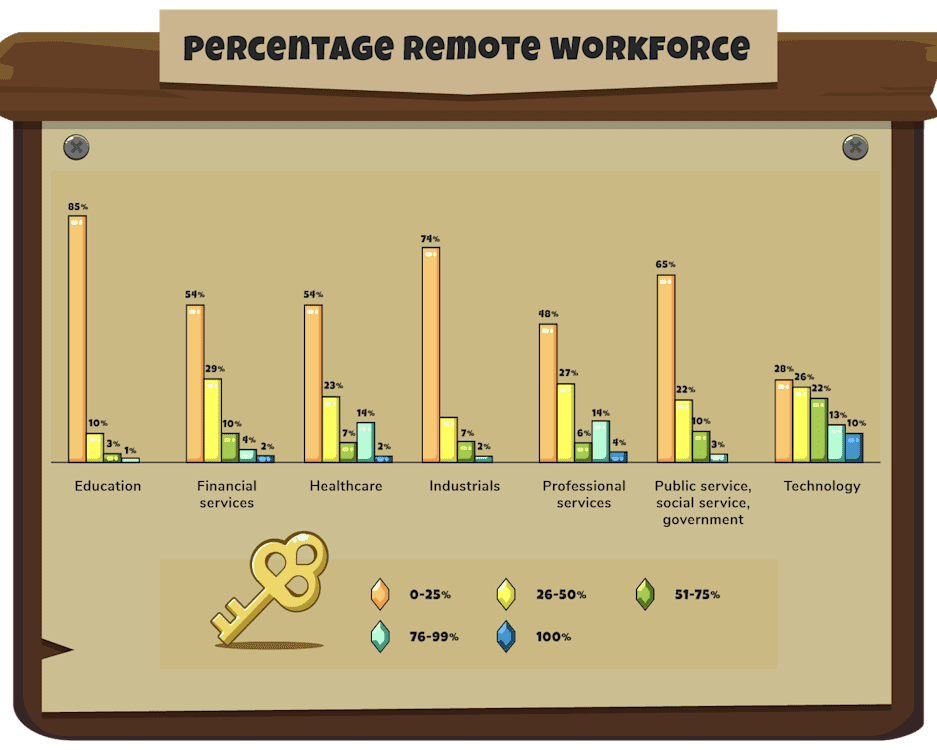
Managing hybrid environments is both an art and a science, requiring equal doses of problem-solving ingenuity and technical knowledge — and the right device management tools, of course. Not to brag or anything (okay maybe just a tiny bit), but PDQ Connect is a great example of a device management tool that allows sysadmins to manage both on-prem and remote devices easily and seamlessly from one platform.
7. Managing Apple devices in a Windows environment is challenging
56% of respondents said that they were managing both Windows and Apple devices. While many are familiar with mobile device management (MDM), certain Apple MDM tasks, like managing OS software updates and device configurations, remain challenging. Unsurprisingly, what sysadmins really want is an MDM solution that allows them to easily manage devices, apps, and system updates within their fleets.

We rounded up the survey with some fun fantasy-themed questions, and the answers we got led us to conclude that sysadmins are brave, resilient souls with a soft spot for the underdog. Want all the juicy details? You can check out our State of Sysadmin page to access the full 2024 report and other related content, or follow the PDQ blog for a regular supply of good IT reads.

